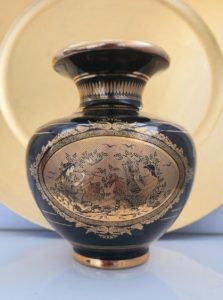Lyric Greece: a Sonnet Sequence
Part One Modern poetry modern verse contemporary poetry contemporary verse
The first reader of “Lyric Greece” (a scientist, novelist, and poet) said he was surprised at how varied it was in content and style.
Earliest Poetry
Modern poetry modern verse contemporary poetry contemporary verse
modern poetry modern verse
The sunlight, bright as gods could ever hope
…..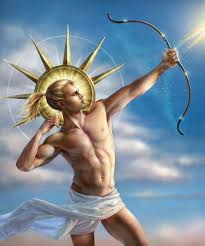
To be, fell down on isthmus, valley, sea,
On life and death, on limestone mountain slope
Before mere humans. Greece as it would be
Was meant for poetry but did not know
It. Men and women and their children came
And, instantly, lyrics began to glow
Around the fires and sacred places. Flame
Combined with rhythm, words, and wonder. Death
Was met with futile singing and with lines
That would have been immortal if the breath
In them had been hewed out in stone designs.
..It should have been, but poetry is air,
….Black ink, or sun that falls on warriors’ hair.
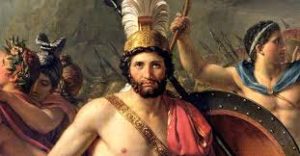
………………………………
Enough Trouble Caused
When we began to put the gods in myth
And language of the poets, transcendence
Died. This literature became the smith
That pounded, flat, godly ascendance
To make them jewellery foil for our minds.
They used to be so coolly far above
Us that they spoke to us through riddles, blinds,
And thickest curtains, prophets offering love
And loving threats (the worst). Now history,
These beings once were far outside the blood
In bones and now the gods are mystery
Who come, if at all, like an inner thud.
..Where have the gods gone to, the ancient, high
….Ones? Don’t return. Avoid Sinai.
A Sacred Prize
Modern poetry modern verse contemporary poetry contemporary verse
Gods used to care about men’s singing love
And poetry. A victory in song
Made up of music and male words above
The rest in contests was akin to strong
Success in battle. Victory held out
From her divine himation in her hand
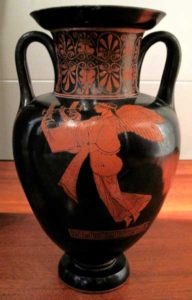
A cithara that caused a hirsute shout.
The men acclaimed the poet like a band
Of soldiers yelling “Níki!” after war:

Men cared about the singing and the ode.
Their acclamation was a virile roar.
His singing and his poetry both glowed:
..The ode was made of glory and of praise.
….The lines and music made their concord blaze.
A Second-Century B.C. Homer
Modern poetry modern verse contemporary poetry contemporary verse

https://www.forumancientcoins.com/catalog/roman-and-greek-coins.asp?param=66578q00.jpg&vpar=1911&zpg=78255&fld=https://www.forumancientcoins.com/Coins2/
Modern poetry modern verse contemporary poetry contemporary verse
A coin struck in Smyrna shows the king
Of poets in a Zeus-like pose. He holds,
Though, not a thunderbolt that he will fling.
Instead he wields a scroll. When it unfolds,
The roll will flash and rumble evermore
Through all our human eras. Lightning peals
Reverberate for seconds. Zeus’s score
Is just a ricocheting bang. It reels
Away to nothingness in fractions of
A moment. Homer modulates through keys
Of music playing every age in which men’s love
And hate continue. He is more a frieze
Of unharmed marble than a slash of light.
His poetry makes Zeus’s prattling slight.
Aegean Heat
We look at Orpheus, torn on the ground.
We try forgiving women and his wife
For tearing at his heart and body found
Among the barren olives. This one’s life
Is deathless in the myth of love and sounds
Discarded in eternity. We seek
Forever to recover them. The grounds
And versions of the story creak.
No poetry of his is gathered. Our
Attempts replace it ruthlessly. We try
To gather it like manna but its power
Has melted in Greek suns. We see his thigh
Sprawled out in myth, but everything is lost
Of lyrics. We desire a Pentecost.
Coldblooded Aegean
“The heart is deceitful above all things,
and desperately wicked: who can know it?” Jeremiah 17:9
“ ‘Why did the whole Greek world exult over the combat scenes in the Iliad?’ asks Friedrich Nietzsche. We modern readers do not even begin to understand them ‘in a sufficiently “Greek” manner’. If we understood them in Greek, ‘we should shudder’. Nietzsche does not mean in the Greek language but in the Greek spirit. Whoever reads the Iliad … has to come to terms with the profound ‘otherness’ of one of the very traditions which lies at the root of ours.” ~ Michael Schmidt, The First Poets, 17
The Greeks were not humane, not any more
Than owners of the Guineamen on waves
Of empire. Ancient Greeks loved Homer’s gore.
They loved men’s death, hard rape of women, slaves,
Yes, all the worst of war. They loved it all.
The glory of the gore was what it bought.
They loved the gore itself. This might appall
Us now. Our lily consciences are brought
To nausea, but Greeks had thorns for souls:
No mild pastels for nature, not for these
Axe warriors. They drove swords and sharpened poles
Through bellies. Blood soaked ground was not some sleaze
To them. It opened up slick grandeurs, like
Wealth. Greeks thought human nature was a spike.
An Ancient Greek Trinity
In Athens Love was placed in honor by
Athena. There beside chaste wisdom, love
Was set up on a plinth. The Greeks placed high
In their gymnasia that god above
Their bodies practicing for ideal power.
Accompanying love there in that place
Were Herakles and Hermes, one a tower
Of bravery and the other for words’ grace.
This triune placement was supposed to mean
That when true eloquence and valor stood
In perfect symmetry with love, three, clean,
Then amity would be the highest good.
The greatest liberty resulted when
These three combined in sacred-spaces men.
Ancient Art
Modern poetry modern verse contemporary poetry contemporary verse
“the ancients had not that conception of beauty
separated from goodness which forms the basis
and aim of aesthetics in our time” ~ Leo Tolstoy
A moral pillar rises from the base
Of ancient poetry and art. The stone
Is hard and white. It helps define the space
By looking like a marble baritone

Set there among the arts to sing the note
That they must tune to. All around its form
The ceiling, floor, and walls hear what that throat
Is chanting silently. These parts are warm
Or cool. It does not matter which, so long
As they embrace the meaning of that core.
It holds them all together with its strong
Consistency. These parts are in rapport.
The slightest sin against the shaft would cause
A wounded art. The pillar makes the laws.
Ancient Greek, Then Church Latin,
Symposium, Scriptorium
“Readers of Greek poetry constituted an élite, as in the
Middle Ages readers of Latin did.”
~ Michael Schmidt, The First Poets, 13
“The symposiasts drank rather too much watered wine, wore crowns, perfumes and other embellishments, enjoyed the presence of lovely boys and hired women, and then burst out into the steet, spilling their rowdiness on the neighbourhood.”
~ Michael Schmidt, The First Poets, 11
The air which floated near the men who lay
On couches one by one, or two by two
In Greek symposia felt interplay
Of flute and barbitos commingling through
The room and mixing with the sounds of song
And poetry. Men laughed and disagreed
With gentle mockery. A thousand long
Decembers later monks beyond the Tweed
On Lindisfarne wrote down the words decreed
For vellum. Lacking incense even in
The atmosphere of sacred words, the need
Of quills was only for the lack of sin.
The latter room knew taste like ink, the sweet
Room fun, confined élite, refined élite.
Apollonian Loveliness in the Lands of Eos, Trailing Robes
“He would delight his heart while gazing at
Their men,” those ancients, the Ionians,
This visitor to Delos. They begat
Their children later Macedonians
Would jealously desire them though if they
Had seen them centuries before. These young
Ones and their “modest mothers” on display
There on Apollo’s island caused the tongue
Of poetry to praise them. Older strains
Of beauty in the east, not mainland Greece,
Produced the songs of Sappho and the veins
Of verses from Alcaeus. In the peace
Described in this one poem, men’s long clothes
Trailed back behind them as they broached their oaths.
Ars Poetica
Modern poetry modern verse contemporary poetry contemporary verse
“The word ‘classic’ itself . . . derives from the Latin word classicus which referred to recruits of the ‘first class’, the heavy infantry in the Roman army. The ‘classical’, then, is ‘first class’, though it is no longer heavily armoured.” ~ Robin Lane Fox, The Classical World: an Epic History from Homer to Hadrian, p. 1

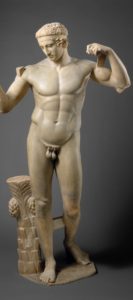
The finest do not win the war with weight
Of numbers. Heavy popularity
Is not enough to stop them. You can freight
The arts with freedoms of vulgarity,
Simplicity, and banging rhymes in verse,
Or wildest sloshes meant to shock the eye
In paintings. You can conjure even worse
In license in a film with all awry
With tastelessness and dirt. There is a way
Which always has been there to make the best
Of creativity. It is the sway
Of formal rules to help the artist wrest
The power of lawlessness by might of mind
And make of grossest chaos things refined.
Ars Sonnetica
Modern poetry modern verse contemporary poetry contemporary verse

https://www.google.com/url?sa=i&rct=j&q=&esrc=s&source=images&cd=&ved=2ahUKEwj9qaPf5LLdAhVLUhoKHZQsD9QQjRx6BAgBEAU&url=https%3A%2F%2Fartpodstudios.com%2Ftag%2Fscarf%2F&psig=AOvVaw0qsgsuveysuncPEWTGYgmr&ust=1536749550364590
Thick wool is woven with eternity
In classic arts. The woof is plain facts, true.
The timelessness inspires fraternity
In opposites. The warp includes the view
Of things from deities. When frankness meets
Immortal thoughts in hymn-like forms, the pair
Produces perfect art. Resulting feats
Are tragedy and odes, and curled hair
On marble sculptures. These persist. They live
Forever even though they have no life.
These elements are strict. They must forgive
No rulelessness. They are an honest wife.
When freedom turns to license, damage flares.
The best aspire to act as classic heirs.
Treasures from the Wreck
of the Unrecoverable
Modern poetry modern verse contemporary poetry contemporary verse
“Athenaeus quotes more than ten thousand lines
of verse in it, many not preserved or attested
elsewhere.”
~ Michael Schmidt, The First Poets

Ten thousand lines of poetry, and more,
Preserved for us by just one drunken man—
That’s quite a feat. There’s poetry galore
In vast oblivion, though, quite a span
Of ancient verse that’s lost. The Isle of Cos,
The tiny Isle of Cos alone, produced
Two famous poets and the tragic loss
Of almost all such work leaves life reduced.
This doesn’t take account of Hesiod,
Or Pindar, or the poet of Cyrene,
Callimachus. No matter how we prod
The depths of lack, there’s nothing more to glean.
Nearly all that Sappho loved and wrote
Is gone in careless time’s deep-fathomed boat.
“It containeth strange and singular relations, not without some spice” ~ Sir Thomas Browne
An ancient cookbook full of spice and sauce,
This book by Athenaeus offers more
Of poetry than any other. It’s a gloss
On classic Roman greekness. We abhor
The loss of all the verse he could not fit
Inside his volumes. Certainly he tried
Much harder than all others. He might flit
About too much but his wide-ranging stride
Is structured like a conversation, so
That is normal. When not discussing food
And finer points of verse, the men’s chat’s flow
Takes in all sorts of things, even the rude.
Where else can men experience the joys
Of eating, epics, lyrics and nude boys?
Two Men from Two Small
Places Save Poetry for the
Universe: Athenaeus of
Naucratis and C. D. Yonge
of the Village of Eton
Modern poetry modern verse contemporary poetry contemporary verse
One thousand and six hundred later years
Or so an Englishman translated all

These lines for us. So Athenaeus’ fears
That banquet conversations might well fall
Between the cracks of history came to naught.
The author from Naucratis found a mate
In Britain after all that time. So fraught
With danger of annihilation, great
Amounts of poetry were saved by two
Men, lovers. Neither knew consummation
Of their impassioned work together. Few
Couples have produced such preservation.
The verse they saved is ancient, Greek, and rare,
Egyptian and Etonian this pair.
Aurora Actuality
“We can confirm almost nothing about Homer and Hesiod,
yet we have no problem, even when we should, believing
in them.” ~ Michael Schmidt, The First Poets, 22
Who doubts that Homer, Hesiod, the old
And oldest poets ever lived? Why should
We? Poets huge as these still live and hold
Our ancient histories. Greatness has withstood
The depredations of millennia.
Fires, wars, and sinking ships
Left lines. As old as white Parthenia
Herself, almost, the poets’ speaking lips
Are far more real and full of life than men
And women in their millions who have gone
Without a trace. Before the inked quill pen
These poets brushed deep strokes, a lasting dawn.
These poets are more real than muscle with
Blood. They are much more real to us than myth.
Bagoas Won Two Prizes, the Great One First and then the Minor One
Bagoas, given as a present to
The King of Asia, was so stunning in
His beauty that he caused a noble, true
Benevolence in Alexander. Skin
As lovely the younger man’s was more
Than equal to the royal need for wrath
Against Darius’s murderers. Sore
With love, the Great one followed mercy’s path.
And then the youth proved he was more than eyes
Could see. He made the soldiers hear that bliss
Which only singing gives. He won the prize,
The contest prize. The army shouted, “Kiss
Him, Alexander, kiss his lips.” The King
Obeyed and every heart began to sing.
Before the Internet in the Ancient World
“Hellenistic culture was of necessity a culture
of the book . . . : the age of the reader had
arrived, and a poet was often a man speaking
to a man, not to men.”
~ Michael Schmidt, The First Poets, 13
The audience grew smaller in the room.
Where once were men, now only just one man
Unrolled a book in sunlight. In a gloom
Of loneliness a candle held the span
Of largest minds and universes. Pen,
Papyrus and some ink set forth a mind
In afternoons and nights. Now thinking men
Could sit in peristyles alone and find
The cosmos of the poets, ink distilled
Philosophy, and ivory knowledge peeled,
A torch-lit space with soul-like letters filled
With treasures that the reader now unsealed.
A man from distant pasts or distant lands
Spoke silently. He spoke in new-found hands.
Originally published August 26, 2017, by the Society of Classical Poets
Before We Brought Them Down
Thou shalt not make unto thee any graven image ~ Exodus 20:4
When gods become mere figures, they are not
Gods anymore. They slip to being oil
On canvas, words on pages, poems caught
In scrolls and codexes. Gods used to roil
Around in blackness, lava underground,
Like Vulcan with his ever saddened wives.
The beauty of these gods was so profound
Because we could not see them. All their lives
Were secret in the depths or heights of brains,
Imagined much imperfectly and left
To be unrealized. They settled stains
Inside their worshiper who felt their heft.
Their distance was as crucial as a bolt
Of lightning to a tree. They gave a jolt.
Bitterer than Blue Dreams
Modern poetry modern verse contemporary poetry contemporary verse
I sleep with one black perfect curl beneath
My pillow. It belongs to love. Below
My blond, blond head this curl is like a wreath
Of mourning. Blackness almost has a glow
There hidden in my bed. The gloss of hair
Sequestered underneath my nightmares tries

To turn them into dreams without a snare.
An ancient teacher who was marble wise
Gave Alexander his own marked up scrolls
Of Homer. Alexander put a knife
Beside them there beneath his war tent poles
And headrest. Lines and blade performed as wife
Who gave instruction and provided guard
Against sly murder. They were keen and hard.
Brain Matter or Bone Marrow
Modern poetry modern verse contemporary poetry contemporary verse
“Stefan Büttner (‘Inspiration and Inspired Poets in Plato’s Dialogues’) acknowledges the frequency with which Plato accepts the possibility of inspiration and admires its benefits. The experience of inspiration is in some way part of nous, akin to forethought and foresight, lacking mainly the systematic rationality of other modes of intellection.” ~ http://ndpr.nd.edu/news/plato-and-the-poets/
I ask you, “Whom would you prefer to follow,
The poet, or philosopher, or both?”
The poet prays to porn star Apollo.
The poet does not pledge a sacred troth

To wisdom. Poets find another way
To truth outside Athena’s temple. So

As noble as her brow may be, the sway
Of epic and of lyric helps us know
Inside our guts. Philosophy is cold
As mathematics. Furthermore we think
Philosophers can find out every fold
In absolutes and label every link
In knowledge flawlessly. The human mind
Needs both, perhaps, to keep us well aligned.
Buried Fruit
Egyptian desert places are the most
Productive in our search for classic fruit.
The ruins near the Memphis desert coast
Were planted with a sowing absolute.
There near the Serapeum was a pot
Of books, their texts the earliest so far
To come to us in Greek. The sand was hot
And dry enough to save this treasure jar
Including in the riches there a scroll
Containing part of Homer’s Iliad.
From Fayyum and from Oxyrhynchus roll
Out other treasures in a chiliad
Or more of riches. Thank the gods for sands
And for the care in ancient scribal hands.
But What if I, when Speaking in my Own Voice, Make a False Representation of Myself? Elementary, My Dear Plato
It seems that Plato means that if I speak
Or write in poetry, but in my own
Persona and my voice, that is not weak
And dodgy like mimesis. In this clone
Of me there is no imitation of
Some other person. That is Plato’s thought.
This “Phillip” voice is truer and above
The mimicry he hates, the fake so fraught
With undermining danger. Homer chants
As Homer sometimes in the Iliad,
But when a king speaks there, then Plato rants
Against this falseness. It is bad, bad, bad.
It’s pitiful to think a man like him
Could be so childish. He seems really dim.
Centuries and Utterness Separate Them
Modern poetry modern verse contemporary poetry contemporary verse
Salonika, where Paul and Xerxes stood,
Affords a long Aegean view across

To Mount Olympus. One took on his hood
Of holiness and one took on a loss
Staggering in history. Paul, the saint,
Went on to conquer worlds with words on scrolls
He sent around the Middle Sea. The taint
…….
Of rout forced Xerxes to retreat. Their roles
Of emperor and fervent writer of
The highest principles of faith, and hope,
And, highest of them all, agape love,
Were widely separated in their scope.
The king went back with tail tucked in between
Cur legs. Paul sings ecstatic and serene.
Centuries before Sappho
Praised Men and Women
contemporary verse
Pre-echoes of that verse, ancient Greek
In poetry, go back so far that lost
Verbs, Indo-European ones, can almost squeak
Through Sappho. It is like they are embossed
Behind the papyrus and her inked lines
Were written clearly on millennial
Octobers’ vine fronds, leaving only mines
For us to dig for the perennial
Resplendence harking back to fire-lit caves.
Our poetry today derives from lungs
That sang out grief and verses over graves
Beyond our thoughts in atavisitic tongues.
We are the heirs and heiresses of breath
And syllables we use to battle death.
Classic Clarity
Modern poetry modern verse contemporary poetry contemporary verse

Who’d want to read the ancient poets, myth
And tales, because of facts? Aegean blue
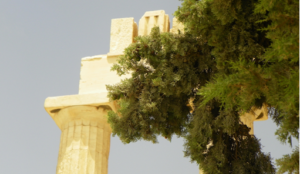
And empty temples, ancient grave sites with
A beaten gold mask may be facts and true,

But true enough? Excited Schliemann sends
The king of Greece a message, “I have seen
The face of Agamemnon.” Culture lends
Us larger truths. Greek daylight in between
Ionic columns, whole or broken, tells
Us more than archeologists. It means
A mindset caught in clarity. The wells
Of Homer’s words are truer in their scenes
Of human anguish than the biggest fact.
They teach us still how we should think and act.

Comedy or Tragedy: Someone Should Have Told Shakespeare
Modern poetry modern verse contemporary poetry contemporary verse
When comedy was talked about, the thought
Of Plato and his mates was that the laugh
Was different from the groan. A playwright ought
To write just one of these. It was a gaffe
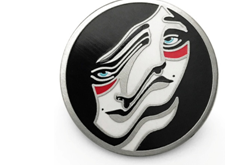
To try to make the comic and the sad.
The writers for the theatre should know
Which genre was their own, to make the glad
Hilarity for seated crowds, or mow
Them down with grief. No poet for the stage
In ancient Greece attempted both. If one
Wrote tragedy and filled the heart with rage,
He couldn’t be expected to write fun.
Poetry was just a technical craft.
To try your hand at both would prove you daft.
Constitutional Slaughter:
Connecticut, Nevada, Florida,
Texas, Texas
Modern poetry modern verse contemporary poetry contemporary verse
“Stronger than lover’s love is lover’s hate.” ~ Medea, Euripides

The women don’t do this, except that queen.
It’s mostly males who go berserk with guns.
The women swallow hate and they go mean
Like stars that eat another star. These ones,
These men, kill school kids, and the people at
An airhead concert, or the students on
A college campus. Heads explode, go splat
Like Kennedy’s with people on the lawn
Not noticing. It happens all the time
In poor pathetic corners of the states,
In poor pathetic America. Crime
Moves closer to the norm through petty hates.
..The men know love and then it turns to death
….Sprayed out of barrels—America’s breath.
Costumed Judgment
Modern poetry modern verse contemporary poetry contemporary verse
The royalty and myths and heroes of
Those eras far removed in masked up time
Produced the primal tragedies. The love
In them, the hate, and motives for each crime
Are seen immortal—or undying for
As long as animosities endure.
The gods laugh up above. The poets pour
Out scorn through mouths of actors. Only pure,
Purged, scalding truths will serve the writers’ needs.
As, in refining fires the facts about
The human hulk against eternal creeds
Are shown, the audiences have to shout.
The pitiless rise up. They rise and stamp
And yell. Tragedy slams, a moral clamp.
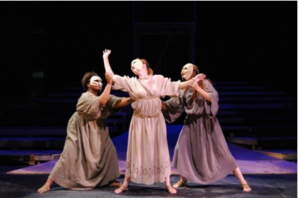
http://sethboustead.com/bringing-back-greek-tragedy/
Crippled Poets
Among the earliest of lines to spring
And linger utterly till now are long
Ones drawn from blinded eyes. The verses sing
Like prophets’ spirits which must see. A song
Of guts, the gods, and marrow-spills came out
From manly depths behind the forehead of
This sightless face. Other cripples shout
From later centuries. They cry out love,
And hymns, and death because of twisted bones,
And club-like foot, misshapen skull, soul, brain.
Both beauty and a melody in tones
Of bitterness blared out from dwarf-shaped pain.
..The blood-drowned lungs of Keats exuded death
….In this long line of men with twinge-fraught breath.
Crushed Wings of Longing
Modern poetry modern verse contemporary poetry contemporary verse
“Some say he was around sixty-three years old when he met his death”
~ Michael Schmidt, The First Poets
Much longer than the greatest poet I
Have lived. We have no notion just how much
He wrote. Our image (greater than the sky)
Of him is larger than a man can touch
With many thousand lines of verse, of blue

And white perfection. Tens of thousands of
The purest sonnets — no matter how true —
Cannot trump Orpheus’s mythic love,
The love and deaths caught up in fate and song,
Because those poems are not doomed by hell.
No other poetry can be as strong
As gods and fate. No sonnets can excel
Immortal death, not even if they kill
Bright adoration raised by ardor’s thrill.
